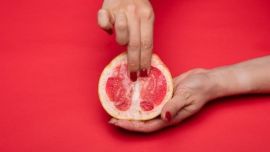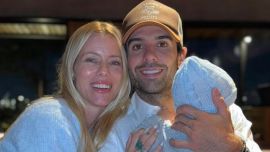The woman denouncing two French rugby players for rape is ready to take the case to the highest instances, her lawyer Natacha Romano told AFP as she prepares to appeal the players’ acquittal.
"I have instructions to go right up to the [Supreme] Court," she said in her Mendoza office, the venue of the case.
Hugo Auradou and Oscar Jegou, both 21, were acquitted on December 10 on the rape charges presented by a woman of 39 who said that on the night of July 6-7 she had been attacked by the duo at the hotel where the French rugby team was staying after a match against the Pumas.
Yet "there was never any doubt that the verdict would be appealed if it were acquittal, such were the instructions of the woman we represent," said the lawyer Romano.
According to Romano’s explanation, the courts have admitted her appeal, which will be lodged in the next few days.
"Our next steps are the Cassation Court in Mendoza and, if necessary, the Inter-American Court. My instructions are to exhaust all instances," she added, describing a route which includes the Supreme Court.
Her main complaint about the trial is that "the evaluation of the evidence should be complete."
"We have evidence pending whose presentation had even been ordered but surprisingly, the prosecutor did not wish to see it," she continued.
She was referring to the origin of the plaintiff’s bruises which were confirmed by the court.
Origin of the bruises
While the players’ defence lawyers alleged that the plaintiff had an ailment which made her prone to bruising, the woman denies that this is the origin of the marks, attributing them to being beaten up in the context of a rape.
"The fundamental evidence was the testimony of the haematologist, who signed a report ruling out that our client suffers some ailment which could justify these atrocious injuries, which number 15," said Romano.
According to her explanation, the judge belittled that report, motivating the plaintiff to request her recusal, but the magistrate was confirmed by the court system.
Another point of complaint, according to Romano, was the rejection of any visual inspection of the room where the events denounced took place, as well as any expert sound testing.
"There were repeated contradictions among the witnesses [for the defence] in being able to define whether they had heard the cries for help of the women we represent," she explained.
She added that the defence sought to replace a visual inspection by filming with their own mobile telephones. The episode was "totally ridiculous," accused Romano.
Regarding the possibility of the players initiating a civil lawsuit against the woman for slander, Romano considered that "the slander was theirs," upon recalling that the name and surname of the woman were made public.
She "took the decision to denounce [the crime] to a court instead of standing in front of a camera," said Romano.
"That is no more than psychological extortion to halt the plaintiff so that she does not appeal and withdraws from the case. That’s not going to happen," she assured.
Auradou and Jegou were remanded in custody and then under house arrest in Mendoza before the court released them in mid-August, authorising them to return to France in early September.
The main defence lawyer of the rugby players is Rafael Cúneo Libarona, the brother of current Justice Minister Mariano Cúneo Libarona.
by Favio Roa, AFP























Comments